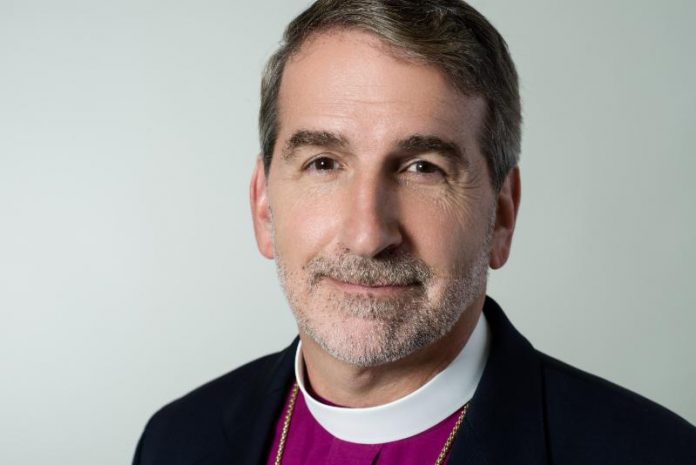9 March 2020
Dear Brothers and Sisters in Christ,
“Do not be anxious about anything, but in everything by prayer and supplication with thanksgiving let your requests be made known to God. And the peace of God, which surpasses all understanding, will guard your hearts and your minds in Christ Jesus” (Philippians 4:6-7).
The global spread of COVID-19, the coronavirus, has become a focus of attention and concern for many of us. Many bishops, diocesan leaders, and experts in the field of medicine have consulted with the Province since this disease was first reported.
Drawing on their deep wisdom, I offer these points, which speak to both the physical and spiritual concerns that naturally occur at a time like this:
1. Trust God.
In the midst of uncertainty, we trust God. He is sovereign over human history and over our lives. He is the Lord, “our refuge and strength, a very present help in trouble” (Psalm 46:1). And he is loving and merciful. Psalm 100:5 assures us, “For the LORD is good; his steadfast love endures forever, and his faithfulness to all generations.”
We witness to our Christian faith when we resist panic, knowing that our times are in the Lord’s hand (Psalm 31:15). No one can snatch us out of the Father’s hand (John 10:28-29). And so, “for those who love God all things work together for good, for those who are called according to his purpose” (Romans 8:28).
The Book of Common Prayer offers on page 269 a list of suggested Psalms on many helpful themes, including God’s sovereignty, providence and mercy, trust in God, and living faithfully in times of trouble. If reading from the Psalms is not a part of your daily prayers, try turning to one of these psalms each day to keep your heart focused on the Lord and his presence and care.
2. Be informed.
There is much on the internet from unhelpful extreme perspectives that encourage either panic or complacency. Neither is appropriate. Pay attention to health advisories from the Centers for Disease Control and Prevention and your state and local governments.
The CDC website provides a wealth of information about the disease and appropriate steps for individuals, churches, schools, and businesses to take.
You may wish to subscribe to the CDC’s COVID-19 newsletter to get regular updates. Go to their newsletter subscription page and choose the newsletter entitled, “Coronavirus Disease 2019 (COVID-19).”
Avail yourself of your own state’s Department of Health website for the most up-to-date information, treatment, and infection control measures for your particular region of the country.
3. Be prudent.
Wash your hands! Wash them frequently and thoroughly, for a minimum of 20 seconds using soap and warm water. There is no substitute for this. While alcohol-based hand sanitizers can kill bacteria, they have not been shown to be adequate against COVID-19 or other viruses. The U.S. Food and Drug Administration recently warned Purell’s manufacturer to cease advertising it as an effective agent against viruses. Avoid touching your eyes, nose, and mouth with unwashed hands.
For cleaning surfaces, such as doorknobs, countertops, etc., the CDC and our experts recommend using bleach (1 part bleach to 100 parts water).
If you have symptoms of a cough, disease, or a fever within the last 24 hours, please stay at home. Infectious disease specialists in the Anglican Church in North America have emphasized how vitally important this is, though COVID-19 can also be spread by people who have not developed symptoms of illness.
If you are returning from known areas of higher prevalence of COVID-19, we encourage you not to attend church for two weeks. The list of affected areas and the period of self-quarantine will likely change in the weeks ahead.
Prudence and care, especially for those who are susceptible to this and other viral illness, will require extraordinary leadership in the weeks to come. The diocesan bishops of the Anglican Church in North America will be developing plans and guidance to be used in their own dioceses. You may be receiving guidance from your bishop about any temporary changes that may be warranted in your church’s worship during this crisis.
These are godly men that work carefully with the clergy and experts under their care to find the most appropriate course of action for the parishes under their watch. Knowing that sometimes difficult decisions may have to be made, I ask you to pray daily for the men and women involved in these diocesan processes and to carefully listen and follow their direction.
4. Act in love.
Reach out to your neighbors, particularly the elderly and those who are vulnerable or alone.
Let us pray:
Almighty God, our strong tower of defense in time of trouble: We offer you praise and heartfelt thanks for our deliverance from the dangers which lately surrounded us and for your gracious gift of peace. We confess that your goodness alone has preserved us; and we ask you still to continue your mercies toward us, that we may always know and acknowledge you as our Savior and mighty Deliverer; through Jesus Christ our Lord. Amen.

The Most Rev. Dr. Foley BeachArchbishop and Primate, Anglican Church in North America










